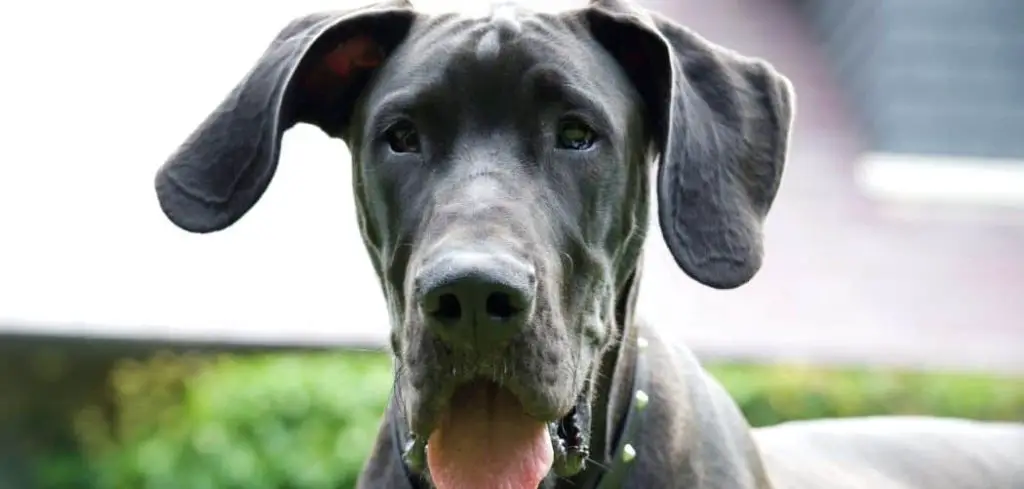If a dog is experiencing mucus in their poop along with kennel cough, it can leave owners feeling worried and unsure of what’s happening.
These symptoms may seem unrelated, but when they occur together, they can point to underlying health problems that need attention.
We outline reasons why mucus in a dog’s poop happens along with kennel cough, what you can do at home, and when to seek veterinary help.
Table of Contents
Mucus in Dog Poop and Kennel Cough — Why It Happens
Mucus in a dog’s stool combined with kennel cough often signals irritation in both the digestive and respiratory systems. Dogs may develop excess mucus in the intestines due to infections, parasites, or stress-related inflammation.
At the same time, kennel cough, a contagious respiratory condition, can weaken the immune system, making dogs more vulnerable to gut issues.
Together, these symptoms can indicate infections, dietary intolerance, parasites, or even more serious systemic illnesses.

Mucus in Dog Poop Kennel Cough: Common Causes
Kennel Cough with Secondary Infection
Kennel cough itself is usually a mild upper respiratory infection, but it can weaken a dog’s immune defenses.
When this happens, bacteria or viruses may spread beyond the lungs, affecting the gut. This can trigger mucus in stool as the intestines respond to infection.
Dogs may cough, hack, and show reduced appetite while also passing loose stools with slime-like mucus.
Read more: Dog Mucus Poop and Colitis (What it could mean)
Stress Colitis
Dogs with kennel cough are often stressed due to illness, reduced appetite, and changes in routine. Stress colitis occurs when anxiety or physical strain causes inflammation in the colon.
This results in soft stools with visible mucus. Owners might notice their dog pacing, coughing, or appearing restless before experiencing sudden bouts of slimy stool.
Stress colitis is uncomfortable but usually resolves once the underlying illness is managed.
Intestinal Parasites
Parasites such as giardia or whipworms can cause mucus in a dog’s stool.
If a dog contracts kennel cough while already dealing with parasites, the weakened immune system makes symptoms worse.
Owners may see diarrhea, bloating, and mucus-filled stools. Parasites are common in environments where kennel cough spreads, like shelters and boarding facilities.
Dietary Upset or Food Sensitivity
A dog with kennel cough may refuse food, then later eat too quickly or consume inappropriate items. Dietary indiscretion can irritate the intestines, leading to mucus in poop.
Food intolerances or allergies can also flare up during illness, making stools slimy and uncomfortable. Dogs may lick their lips, show nausea, and strain to poop while mucus coats the stool.
Secondary Bacterial Infection
When kennel cough worsens, some dogs develop pneumonia or systemic infections. These bacteria can also affect the gut, causing inflammation and mucus production.
Stools may appear greasy, slimy, or streaked with blood. Coughing may intensify, and fever or lethargy can accompany the gastrointestinal upset. This scenario is more serious and requires veterinary intervention.
Inflammatory Bowel Disease (IBD)
Some dogs already prone to digestive issues like IBD may flare up when stressed or sick with kennel cough.
The immune system’s overreaction causes the gut to produce excess mucus. Owners may see chronic slimy stools, weight loss, and ongoing coughing or hacking.
This combination suggests both chronic digestive disease and acute respiratory illness.
What to Do If Your Dog Is Experiencing Mucus in Dog Poop and Kennel Cough
If your dog shows these symptoms, supportive care at home can help while monitoring closely.
Make sure your dog stays hydrated, offering small amounts of water frequently to prevent dehydration from diarrhea and coughing.
Feed a bland diet such as boiled chicken and rice to ease digestive strain. Limit stress by providing a quiet, comfortable resting space away from other pets.
If your dog is on kennel cough medication, continue it as prescribed while watching for worsening stool changes. Gentle encouragement for rest and calm will help recovery.
When to Call or Visit Your Vet
Call your veterinarian if your dog’s stool contains persistent mucus, blood, or diarrhea lasting longer than a day.
A cough that worsens, produces thick discharge, or causes difficulty breathing also requires immediate attention.
If your dog becomes lethargic, refuses food entirely, or vomits alongside slimy stools, veterinary care is essential.
Puppies, seniors, and dogs with pre-existing conditions should not wait, as both kennel cough and digestive upset can escalate quickly.
Read more: Mucus in Dog Poop During Heat Cycle (Why it happens)
Key Takeaway
Mucus in a dog’s stool combined with kennel cough can signal stress, infection, parasites, or more serious illness.
While mild cases may improve with supportive care, persistent or severe symptoms require veterinary attention.
By monitoring your dog closely and seeking timely help, you can ensure both their respiratory and digestive health are protected.
